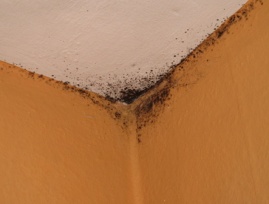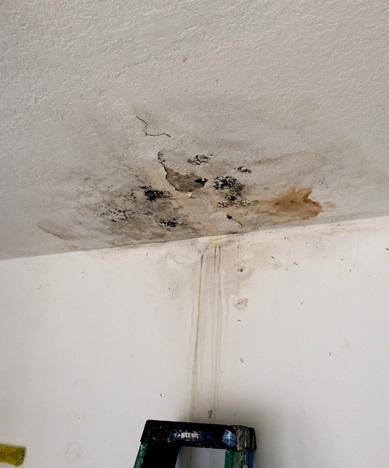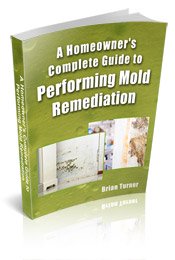Find a Mold Specialist Now
Click or Call, Toll-Free 24/7
Black Mold Information
We’d like to give you some important black mold information. You may have heard about people finding deadly black mold in their homes. Now, people do not typically die from black mold, so calling it deadly may seem like a bit of an exaggeration. However, studies have shown that some people develop very serious respiratory problems after exposure to black mold, and in some cases those really can be deadly.
What Is Deadly Black Mold?

Black mold is the common name for a type of fungus called Stachybotrys chartarum. While it is often referred to as toxic mold, Stachybotrys chartarum is not really toxic or poisonous. It is, however, toxigenic, meaning that it produces toxins, specifically mycotoxins. Those substances can be harmful to your health.
While the mycotoxins produced by Stachybotrys chartarum are not usually deadly, they can occasionally cause very serious health problems, some of which can be deadly at times. For instance, someone with asthma can have severe asthma attacks brought on by black mold. People with respiratory problems and immune system disorders are most likely to suffer serious health problems as a result of deadly black mold.
Symptoms of Deadly Black Mold Exposure
We want to provide you with some black mold information, including information about health problems that may occur as a result of black mold growth in the home. Potentially deadly symptoms of exposure to black mold include:
- Asthma attacks, which can ever occur in people that have no history of the condition.
- High fevers.
- Extreme difficulty breathing.
- Fungal infections in the lungs.
Small children, elderly people, people with immune disorders like HIV (human immunodeficiency virus) or AIDS (acquired immune deficiency syndrome), and people with respiratory disorders like asthma, emphysema or chronic obstructive pulmonary disorder (COPD) are at greater risk for having life-threatening reactions to black mold. However, anyone can have symptoms of mold exposure, even those in good health.
Other Symptoms of Mold Exposure

Deadly black mold is not the only type of mold that can cause health problems. Stachybotrys chartarum and many other types of mold frequently cause problems such as these:
- Coughing
- Sneezing
- Running nose
- Headache
- Sore throat
- Sinus infections
- Rash or hives
- Itchy eyes
- Fatigue
- Dizziness
- Depression
- Difficulty concentrating
- Poor short-term memory
These symptoms are usually not deadly, but in some cases they can still be very serious. For instance, depression is very debilitating and in rare cases, people suffering from the condition attempt suicide. Hives can block the airway if they are severe enough, leading to death if people don’t get medical attention. Dizziness can cause people to fall, and they could hit their heads or otherwise seriously injure themselves in a fall.
Keep in mind that mold is not the only thing that can cause these symptoms. If you have a mold problem in your house and have some of these symptoms, it could be related to mold but you’ll need to see a doctor to find out for sure.
If you have symptoms you believe are mold-related, get someone else to clean up the mold for you so that you are not further exposed. Hopefully your symptoms will resolve after the mold is gone.
For More Black Mold Information
Feel free to contact us if you need more black mold information. We’ll do our best to answer your questions and/or point you in the right direction so you can find the answers you need. Of course, if you have questions or concerns about health problems that might be related to black mold, you should contact your doctor.
Benefits to Consulting with a Black Mold Removal Specialist:
- They will visit your home and offer you a free assessment of the situation.
- They can tell you if you are dealing with black mold or some other type of mold, which may be important with regard to the best method for removing mold and may also be important information to give your health care provider if you are experiencing mold-related health problems.
- They will thoroughly inspect your home to find mold that you may not have seen.
- You will get a price quote that includes a detailed mold removal plan.
- They will give you tips and advice so that even if you decide to remove the mold yourself, you will know exactly what to do and what to expect.
Follow this link to get a list of licensed Black Mold Removal Specialists offering free consultations in your area.
Return From Black Mold Information To Our Black Mold In Homes Page
Black Mold Health Symptoms Home Page





